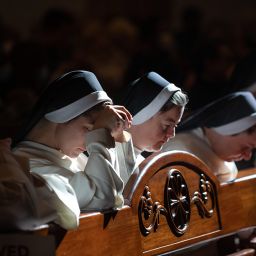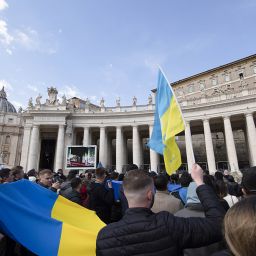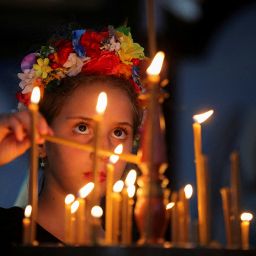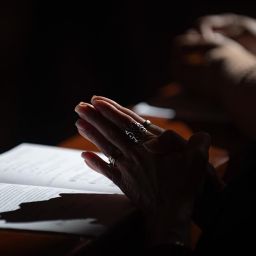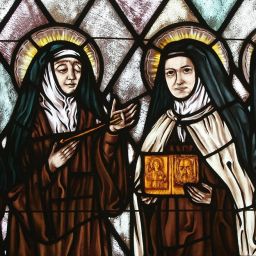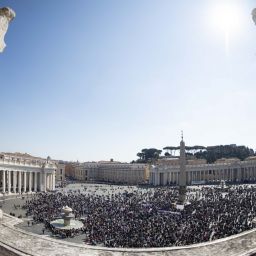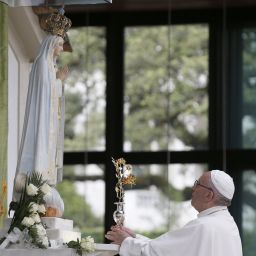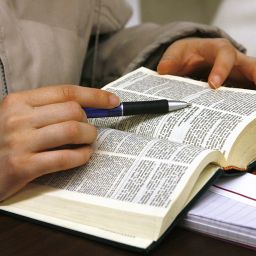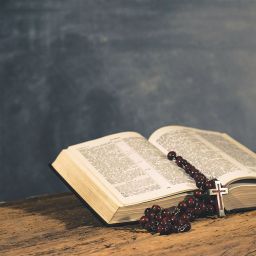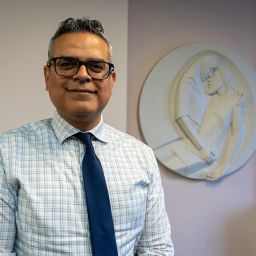By Amy White
The Texas Catholic
Rick Matos, a Dallas Kolbe Prison Ministries core member, remembered the first time he entered a prison unit as a DKPM volunteer. As he stepped inside, he turned his head and spotted a sign behind him. It read “We do not negotiate for hostages,” a somewhat ominous introduction to the ministry.
Still, volunteers like Matos return again and again to these facilities. Something keeps them coming back.
The “desire to serve,” Matos said, and a “hunger for helping the prisoners.”
As a part of Dallas Kolbe Prison Ministries, volunteers minister to inmates by offering them the opportunity to encounter God and His Church during three-day retreats in prison—transforming these Texas correctional facilities into holy places of worship.
‘Prison ACTS’
Named after the patron saint of prisoners, St. Maximilian Kolbe, Kolbe Prison Ministries has served incarcerated populations for the past 15 years. Originally called “Prison ACTS,” the ministry formed in response to a Texas inmate’s request to bring ACTS retreats inside the walls of correctional facilities.
The first “Prison ACTS” retreat was held in 2009. It took place inside the John B. Connally Unit in south Texas, home of the infamous “Texas Seven.”
“Connally was one of the most violent prisons in the state of Texas,” Deacon Larry Harmon, a DKPM core leader, recalled. “Almost immediately, that culture began to change. After that first retreat, the warden noticed the change in those who had gone on a retreat, because they got a sense that they’re not just totally abandoned, that the God that they didn’t really even know is still with them in the prison.”
Since then, the ministry has expanded to other units within and beyond Texas; changed its name to Kolbe Prison Ministries, becoming a separate entity from ACTS; and established local leadership groups, called diocesan cores. Dallas Kolbe Prison Ministries is a regional branch of KPM. It ministers to the incarcerated populations in the Diocese of Dallas.
Like that first retreat in the Connally unit, the stories that flow from the Dallas-area retreats continue to be poignant and surprising, volunteers said—a testament to the activity of the Holy Spirit even in the most removed places.
‘Glimpse of God’s love’
As inmates arrive at DKPM retreats, a line of volunteers welcomes them with smiles and hugs. The hugs are the first of many ways the volunteers show the love of Christ to a population starved for genuine affection.
“To give someone a hug when they come in is the most tangible, physical expression of the love that we have as team members that we want to give to them,” Deacon Harmon said. “[These retreats] show them a glimpse of God’s love in a way that they really have never experienced before.”
Once the forty or so inmates file into the retreat space, often a gym or educational area inside the correctional facility, the retreat proceeds similarly to the ACTS retreats that served as inspiration. For three days, retreatants have ready access to reconciliation, Mass, adoration, praise and worship, and fellowship. For Spanish speaking retreatants, DKPM volunteer translators make the retreat accessible.
The retreatants may be of any or no faith. Fallen away Catholics, Muslims, even Satanists have been in attendance.
“We invite them all, because there’s something actually for everybody,” Gary Garza, a volunteer prison chaplain, said.
Some prisoners choose to attend for the spiritual nourishment; others attend for the food. But whatever the inmates’ original motivation, the retreat offers contact with the love of Christ and the richness of the Catholic faith, volunteers said.
“The basis for Kolbe is to provide space and time to have an encounter with Christ,” Matos explained. “It’s very much of what we call a ministry of presence and a ministry of opportunity. We are present to offer them the opportunity to have an encounter with Christ.”
Encountering each other
A major part of each retreat is the sharing of testimony. Testimony is given not only by volunteers but also by members of the “inside team,” inmates who have been on a retreat previously and can share the stories of their lives, their falls from grace, and their redemptions through Christ.
Often, prisoners come from backgrounds of abuse, neglect, and brokenness. Many fall into a life of crime after taking drugs to medicate themselves from the pain and trauma they have endured, Kerry Johnston, KPM vice president, explained. So, when they hear stories like their own—stories of suffering and imprisonment—their hearts begin to open.
“These guys, they share their story,” Johnston shared. “Other guys get up there and they start saying, ‘I can relate totally. My life was just like that.’ And they begin to see a picture of what it looks like for somebody who’s been in the valley and hit bottom and turned around.”
For many inmates, the testimonies open discussions about forgiveness. Some prisoners resolve to forgive those who have hurt them; others resolve to ask for forgiveness from those whom they have hurt.
“It impacts all the people and their extended families and friends… It impacts their cellmates,” Matos shared. “These things bring tears to my eyes, tears of joy at just how much the Holy Spirit can work in a man’s heart, or anyone’s heart, and change them so deeply.”
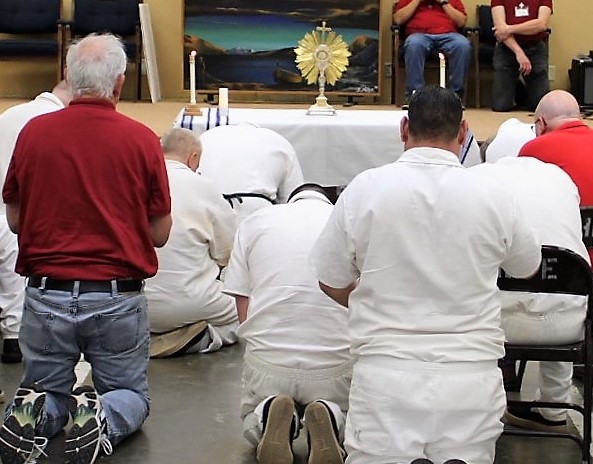
True presence
Some of the most poignant stories of transformation on DKPM retreats take place within the chapel—sometimes a makeshift chapel of tarp—where eucharistic adoration takes place over the course of the retreat.
Many “big guys, hardened guys, tough guys” have been brought to tears in eucharistic adoration during DKPM retreats, Deacon Harmon said. He recounted an example.
“In one of the retreats at Connally, the leader of the Satanists in that unit came on a retreat. It’s like, ‘I’m going to go in and challenge them’ kind of thing,” he said. “The Blessed Sacrament was in a small room for adoration; and he said, when he walked by, that he felt something; [he] didn’t know what it was.”
A retreat volunteer explained the real presence of Christ in the Blessed Sacrament to the inmate.
“Several months later,” Deacon Harmon said, “he came into the Catholic Church.”
Paired with opportunities for reconciliation, Mass, and prayer, many inmates are profoundly affected. Their words change; their faces lighten; their spirits lift.
“Not everybody changes, but many of them do. And it is so neat to see, because you see it in their eyes; you see it in their demeanor, in their behavior,” Johnston said.
Many inmates take steps to learn more about the Catholic Church following DKPM retreats. Deacon Harmon recalled one retreat, for example, where all 42 retreatants signed up for RCIA classes. At the Hutchins unit, there are currently about 40 inmates in RCIA as a result of the retreats, he shared.
“I’ve never ever found the Holy Spirit to be more present, more palpable than He is in these prison ministry retreats,” Johnston said.
Cutline for featured image: Retreatants pose for a group photo during the first Kolbe Prison Ministries retreat held at the Buster Cole State Jail in Bonham, Texas, October 2023. (Dallas Kolbe Prison Ministries photo)



